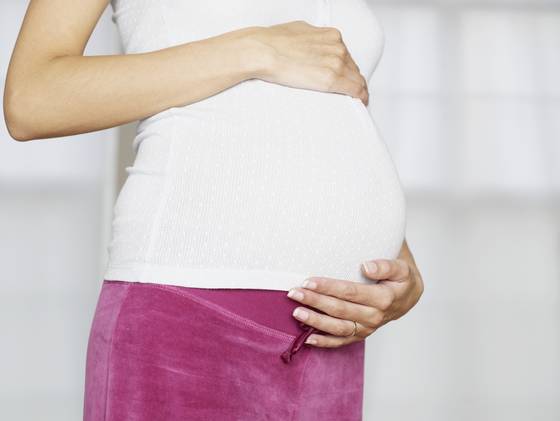Women who had a pregnancy lasting more than 20 weeks after receiving fertility treatments did not have a greater cardiovascular risk over about the next decade compared with women who conceived without assistance, researchers found.
Tag: pregnancy
Infertility Struggles Brings Sisters Together
Johnston and her husband Joby tried fertility treatments, including in vitro fertilization twice. Still, after years of trying, the loving, young couple was childless. Annie hadn’t even had one positive pregnancy test in all the years she had been trying to conceive. …Annie didn’t have the baby she had hoped for, but she did have an older sister to turn to who had watched Annie struggle through infertility.
Hormone Test Shows Fertility Potential
The anti-Müllerian hormone (AMH) is a substance produced by egg sacs in the ovaries, and a growing body of research suggests the level of the hormone is an indicator of fertility potential. Because egg supply, also known as ovarian reserve, is linked to chances of pregnancy, fertility doctors increasingly are using the AMH test to help determine treatment of fertility problems or help women plan pregnancy.
Fertility Preservation in Women With Breast Cancer: Challenges and Opportunities
Given the lack of long-term data, we are often left with more questions than answers about determining the appropriate management of these patients. Caring for women with estrogen receptor–positive tumors and BRCA mutations can add additional complexity. Women with hormone receptor–positive tumors face years of estrogen deprivation and/or endocrine therapy that is contraindicated during pregnancy. BRCA mutation carriers may also consider risk-reducing surgeries to decrease the risk of second breast cancers or to prevent ovarian cancers, thus further limiting fertility potential.
Genetics and Infertility
By Daniel A. Potter, M.D., F.A.C.O.G.
men
It is estimated that up to 20% of couples experience infertility as defined as not achieving or maintaining a pregnancy after one year of unprotected intercourse.
Family history can be a factor …
Morning-After Pill a Boon for Women
Last week, a federal judge issued a decision lifting the age and point-of-sale restrictions on emergency contraception, citing solid scientific and medical research showing that it is safe and effective in preventing unintended pregnancy.
Long Quest for Pregnancy Ups Neuro Risk for Child
The more years spent trying to achieve pregnancy, the greater the risk of conceiving a child with neurological dysfunction,researchers found.
The time to pregnancy — used as a proxy for the severity of subfertility — was significantly longer for children who had minor neurological dysfunction compared with those with intact neurological function (median 4.1 versus 2.8 years, P=0.014), according to Mijna Hadders-Algra, MD, PhD, of the University Medical Center Groningen in the Netherlands, and colleagues.
The difference remained significant after adjustment for gestational age, parental age, and parental education (OR 1.30, 95% CI 1.05 to 1.61) and largely reflected deficits in posture and muscle tone, the researchers reported online in the Fetal & Neonatal Edition of Archives of Disease in Childhood.
“This implies that factors associated with subfertility may play a role in the genesis of neurodevelopmental problems,” they wrote. “Further exploration of the associations between subfertility and health outcome in offspring is necessary for the correct counseling of subfertile couples.” Read full article.
Omega-3s May Lead to Healthier Babies
Pregnant women who took daily supplements of DHA, a type of omega-3 fatty acid, had longer gestations, bigger babies and fewer early preterm births, according to a new clinical trial.
In the double-blinded study, published online in The American Journal of Clinical Nutrition, researchers randomly assigned 154 healthy women to take 600 milligrams of DHA during the last half of pregnancy and 147 to take a placebo.
After adjusting for maternal education, socioeconomic status, prior pregnancy, smoking and other risk factors, they found that babies whose mothers took supplements were almost a half pound heavier than those of the mothers who took none, and they were slightly longer with larger head circumferences.
Almost 5 percent of mothers who took the placebo gave birth at 34 weeks’ gestation or less, compared with only 0.6 percent of the mothers who took DHA. Read full article.
Oklahoma City doctor says emergency contraception not abortion
There’s a difference between the drugs that induce a medical abortion and those used in emergency contraception, or the morning-after pill, an Oklahoma City doctor said this past week.
“Emergency contraception, first and foremost, is not an abortifacient,” Dr. Andrea Palmer, an obstetrician-gynecologist at Lakeside Women’s Hospital, said. “It is not going to dislodge or disrupt an already implanted pregnancy. It’s not something that is going to cause an implanted pregnancy to no longer be implanted or to abort.”
Whether emergency contraceptive pills can cause abortions has been a contentious fight since the pills first came onto the market.
Emergency contraceptive pills have been around since the 1970s, according to a study published in the Association for Voluntary Surgical Contraception journal. Plan B and ella are two examples of emergency contraceptive pills currently available in the U.S. Read full article.
Tips on Coping with Miscarriage and Negative Pregnancy Results
It is a new year and we enter it with wishes, resolutions, and expectations about what we will encounter. One of the toughest things you may have faced last year was a negative pregnancy test …
